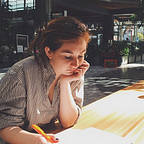Book Review: L’Appart
My review of best-selling author and world-renowned chef David Lebovitz’s 2017 L’Appart: The Delights and Disasters of Making My Paris Home where he undertakes updating his Paris apartment along with recipe inserts. Originally published in Saltern Magazine in 2018.
David Lebovitz’s L’Appart: The Delights and Disasters of Making My Paris Home follows San Francisco chef Lebovitz as he purchases a home in Paris after renting there for several years. Part cookbook, part autobiography, it is aptly named for how quickly his apartment dreams fall apart. Lebovitz does an excellent job of setting the scene and describes to the reader exactly what he wants them to see and understand when discussing his Parisian home.
His prose is pas terrible; but it is clear that cooking is where he shines. French recipes nicely punctuate many of the chapters with an atypique twist that leaves you wanting more. It makes you wish you had time to whip up a soufflé with its six shots of espresso in your satisfactory yet mundane kitchen.
L’appart is an immersive fantasy that delights but simultaneously alienates this millennial who cannot imagine owning a home let alone living in Paris. For example, the way Lebovitz throws money at problems that arise, or chooses against hiring the young architect because all he has built was a movie theatre and that is “nothing like a kitchen” seems ill-advised to me. But it’s hard not to compare one’s life to this whirlwind French chef’s. However, Lebovitz is sympathetic, and at the end of the day, you feel bad that his dreams didn’t turn out to be quite what he hoped.
Lebovitz is charming, yet his analysis of the contrasts to the French and American sensibilities leave this Canadian unsure if there is any truth to his claims. He makes bold statements that the French are rude and Americans are good-natured, possibly from all that humble pie they serve in the south.
It feels strange that Lebovitz wishes to become the rude French male stereotype instead of the pushover that he claims he is, and it’s odd how the frequent differences between Americans and Parisians are mentioned. These generalizations made me uncomfortable. However, it does give a nice through-line for his cookbook that is, essentially, the melding of these two things as Lebovitz, an American, officially moves to Paris. He highlights this in his selected dishes, often by twisting a classic French recipe in an American way, even if it is just with the metric system.
As a narrator, I liked that Lebovitz is unreliable. I assume Lebovitz tells the truth but perhaps it is his version of the truth. If we heard Claude’s story or Romain’s, Lebovitz’s boyfriend, I am sure there would be differences. I have made assumptions about nonfiction (it couldn’t have an unreliable narrator, it had to be factual like a history book, or overtly personal and real). In this instance though, I felt immersed in the fantasy of the situation, like I do with fiction. Yet perhaps this book was still too real for me; concerning myself with people’s real problems and financial situations when someone else might have enjoyed the funny and manic trials of putting together an apartment in France, which we could only dream to do.
Come for the to-die-for recipes and the thrill of living in Paris, stay for the mind-boggling money he spends, and leave with a sense that you learned something and that you lived through his fantasy life for a few pages.
